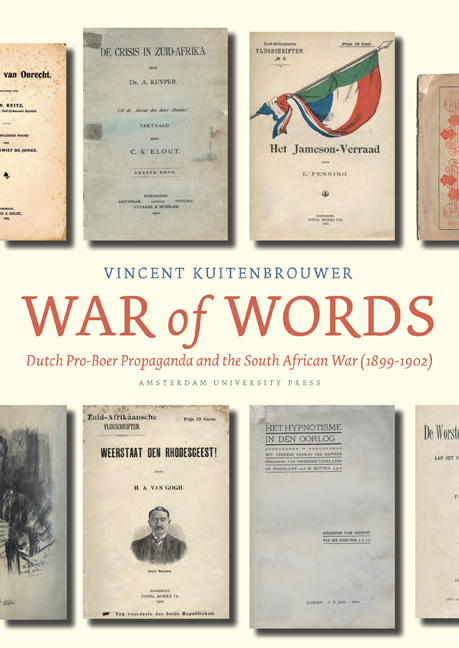Summary
It was already clear to contemporaries that the Dutch enthusiasm for the Boers during the South African War (1899-1902) was to be seen in the context of the history of modern imperialism. In his book The Psychology of Jingoism, the journalist J. A. Hobson drew a parallel between the Dutch depiction of the conflict and the situation in Great Britain, where he argued that the public had been manipulated by a small group of South African capitalists and mining magnates. Sneering at jingo propagandists, he wrote that:
[they] must admit that it is likely that the Dutch nation in Holland, drawing nearly all their information from Dutch South African sources, are animated by a bias similar to, though not so strong as, ours [the British], have received a mass of evidence directly contradictory to ours, and that their intellectual judgement has been formed in a fashion similar to ours.
Despite Hobson's dislike of the jingoist views on the South African War, he was certainly not of the opinion that propagandists who supported the Boer republics were any better. In another book, he described Willem Leyds, the most important diplomatic representative of the Transvaal in Europe, as an ‘evil genius’ behind ‘[t]he notion of an unqualified Dutch political supremacy, with a complete dominance of Dutch language and ideas [in South Africa]’.
Historians point out that Hobson's ideas about the capitalist conspiracy behind the prejudiced press coverage of the South African question were biased themselves, based on his own ideas about Britain's duty in the world and the role of the growing mass media. Still, his observations have shown their value for the historical study of the imperial press. If anything, Hobson's writings show that contemporaries not only considered imperialism to be a process that only took place outside Europe, they also saw a close connection with public opinion in the metropole. His comparative remarks about the coverage of the South African War suggest that this was not only the case in Britain but also in the Netherlands and that propaganda was seen as an important aspect of the struggle between the British Empire and the Boer republics. In later historiography about modern imperialism too, the South African War is considered to be an important topic. This book aims to examine contemporary notions about the concept of imperialism by taking the responses of Dutch propagandists to the South African question as a case study, comparing them with secondary literature about imperial culture in Britain.
- Type
- Chapter
- Information
- War of WordsDutch Pro-Boer Propaganda and the South African War (1899–1902), pp. 9 - 32Publisher: Amsterdam University PressPrint publication year: 2012



